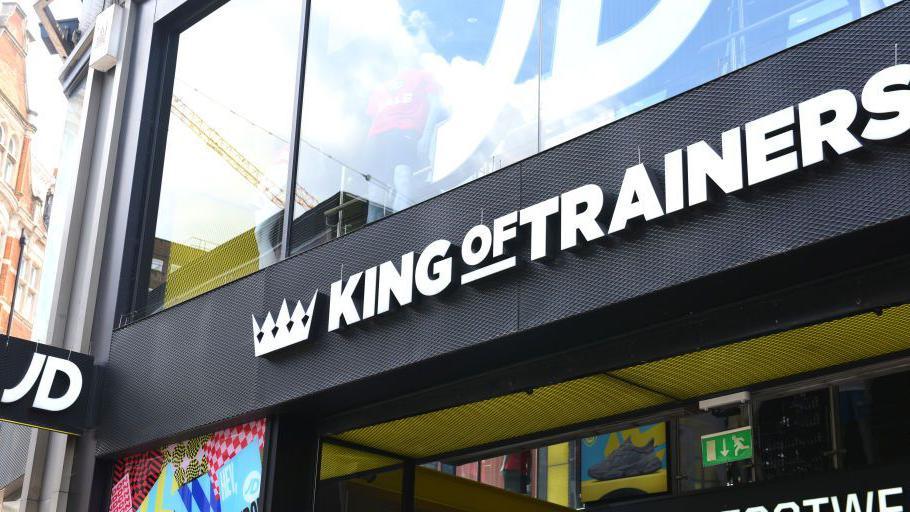JD Sports boss warns prices will rise due to Budget

- Published
Prices in shops and pubs will increase as a result of tax rises on businesses announced in the Budget, two bosses have warned.
Andy Higginson, chair of JD Sports and the British Retail Consortium, which represents supermarkets, said tax hikes from April - including a rise in National Insurance contributions from employers - would lead to a jump in costs for shoppers.
Higher drinks prices could show in as little as six months, added Simon Emeny, the boss of Fullers, which owns about 400 pubs and hotels.
There has been a growing backlash from firms to the higher costs they face from the Budget, but chancellor Rachel Reeves has said "businesses will have to absorb some of this through profits".
From April next year, employers will have to pay NI at 15% on salaries above £5,000, instead of 13.8% on salaries above £9,100 currently.
Minimum wages are also set to rise from April.
On Wednesday, Mr Higginson warned: "I'm guaranteeing you today, if these go through as they are without any sort of feathering, we’re going to see significant inflation in prices."
He called on the government to "phase" in the increases in National Insurance and minimum wages for businesses "over the next two to three years" rather than in April next year.
"We just need to make sure that the immediate impact of all these things doesn’t come in one big lump and that the economy has time to absorb these changes in a way that doesn’t fuel inflation," Mr Higginson told the BBC's Today programme.
The JD Sports boss was one of more than 120 business leaders to sign a letter, published in The Times, backing Labour ahead of the general election and endorsing the party's economic plans.
Warning 'pain' of tax hikes to hit jobs and pay rises
- Published30 October 2024
'This catastrophic Budget will put up pint prices'
- Published31 October 2024
JD Sports and Fullers warn of price rises due to Budget
- Published13 November 2024
The chancellor's budget included £40bn in total worth of tax rises.
More than half of these will be paid for by employers, with the National Insurance increase set to generate £25bn a year.
But there are concerns, the impact will still be felt by working people if firms decide to pass on costs through higher prices and if wage increases are restricted.
Mr Higginson said there was "plenty of time yet" but added it was "hard to see that the actions so far really match that pro-business rhetoric before the election".
He said the Budget created a "worrying" backdrop for businesses at a time when economic growth is desperately needed.
"It doesn’t feel like a Budget for working people. It doesn’t feel like a Budget for growth. I think it will restrict investment," added Fullers boss Mr Emeny.
The pub chain boss said that businesses still had not recovered profits fully post-Covid, and that the Budget measures announced cost an "extra £3.5bn" for the hospitality sector.
"There’s no way a sector like ours can carry this level of cost and just absorb it as profit," he added.
Mr Emeny said that the combination of NI and minimum wage changes would cost his business an additional £8m, although the businesses latest results saw increased sales and profits on its food, drinks and hotels.
In the six months to September, Fullers increased profits before tax by 21% to £17.6m compared with the same time last year.
The average price of a pint of draught lager in the UK was £4.47 in September, according to the Office for National Statistics, but the British Beer and Pub Association recently revealed that landlords make 12p profit per pint.
One London pub boss has said he will likely raise the price of a pint as much as 40p as a result of the Budget.